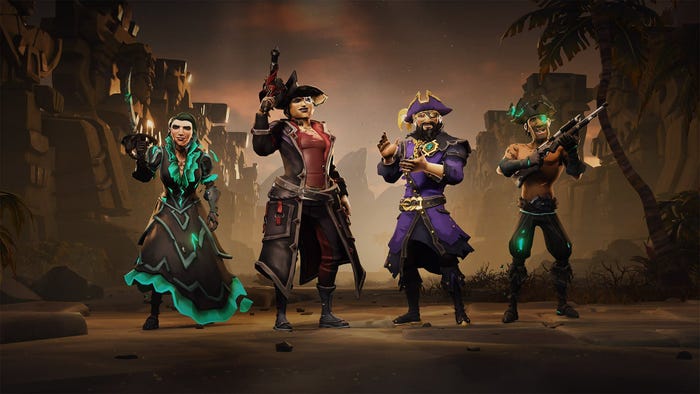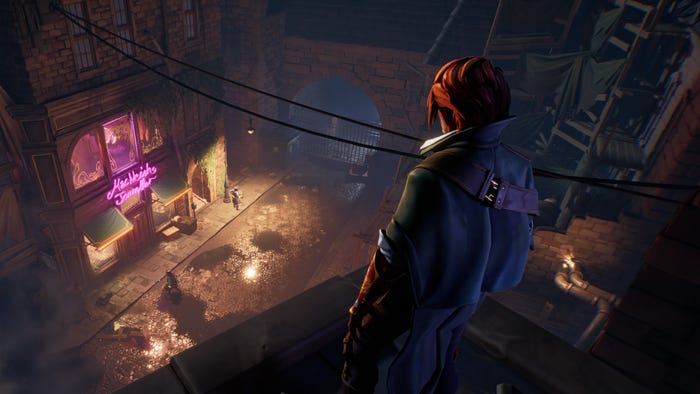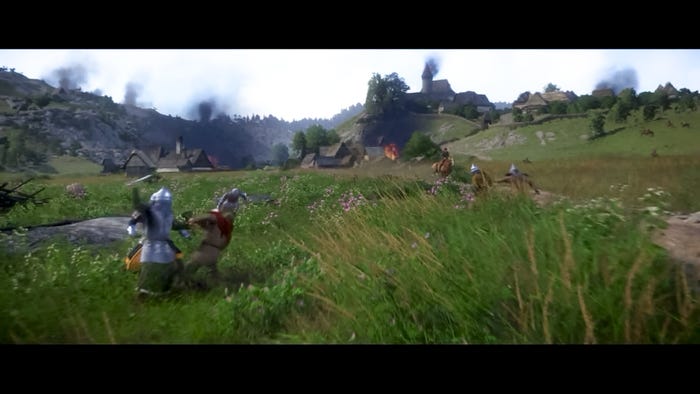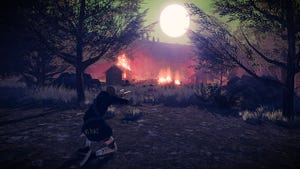Gaia Online began as a forum before evolving into a virtual world which boasts over 7 million users every month. As the company launches a new MMO alongside its social environment, Gamasutra talks to CEO Craig Sherman about the challenges of bala
September 10, 2008

Author: by Christian Nutt, Staff
Gaia Online is unique among virtual worlds, beginning as a forum before evolving into a virtual world which boasts over 7 million users every month. It can often be a challenge for growing online worlds to balance monetization strategies against the needs of the communities that built them, but Gaia CEO Craig Sherman says he's found a solution whereby both world and advertising strategy can grow in tandem. Sherman says Gaia's evolution hinges on its users' needs and requests -- and when they asked for the ability to battle, Gaia responded by launching a proper MMO, zOMG!, alongside its social world. Now, Sherman explains in depth the evolution of Gaia Online from a community website into a full-scale world and game, and how the company's maintained its creativity and relationship with its users even as it's undergone exponential growth from its humble origins. We recently profiled Gaia, and what I found interesting is the site started as a more traditional community site, and then grew into an online world. Craig Sherman: Yeah, it was started by a group of comic book artists and one sort of genius developer literally out of their apartment. They built something for themselves, and for their friends, that just ended up resonating with, at this point, five million plus users every month. But it was extremely authentic, and they're just trying to build something that fit around their own internal passions. So I think it did start out with a very strong anime, and gamer, and community focus. And over time it's broadened, so now you can describe it more like an online hangout for teens and people in their twenties. Or you can say it's an activity hub, and activity portal on the net, but with a meta experience around it that feels more like a place, rather than a tool or a website. So originally it started as a website, without a virtual world aspect. CS: Sure, but it started as a website... with a concept of an avatar representing you, and presence. The concept of having presence inside a message board, so that when you're communicating, there's actually a "you" there. And then you can customize "you" to actually express yourself much more richly than you can in the real world or with a regular website. That was part of the core concept up front. But they weren't trying to build a business; they just kind of built an experience. It wasn't, in fact, to make money. In fact, the story how we made money is terrific. They were running out of money because they had more and more people using the site, and they couldn't afford the servers, so they put up a link on the site and people donated money. In response, the guys at the office in the company, these founders, they started making virtual items. They made a virtual item as a gift, it was a golden halo, as a gift to say thanks to the people who donated. And literally the day after they gave that to the people who had donated, the amount of donations tripled, because it turned out people actually were excited to get the virtual item. And then that spawned what is now a virtual item and virtual services business... …Which is essentially the business model of the site at this point, right? CS: Yeah, right now eighty percent of the revenue comes from people who buy virtual items. But I think it's fair to say the company is still under-monetized, or put together, focused a lot more on user experience than trying to figure out how to generate a lot of money. Because we want to make something big, something we could tell our grandkids about. I think you can make good businesses concentrating on money, but I don't think you can make great businesses. I think if you look in history, the businesses that really stick out, and we aspire to be — not saying we are today — but that we aspire to be, it's ones like Disney. It's the ones where creators built something great that came from their hearts, that connected with other people, and they were obsessive about listening to a customer when building things that they wanted. And you know what? Money usually follows from that. Not always -- there's some web stories that don't work like that. But it's sure more interesting to put your life and time into that as a team, if you're building something that people are passionate about. And that was my recommendation for people there, but for us it's all that happens at our company. We get hundreds of letters every week, no exaggeration. They're awesome. You should come by and actually see them. Hundreds of letters from kids who say... Paper letters? CS: Paper letters, from people who say we, in some way, changed their life. They made their best friends on Gaia. I had one person who's in the hospital with cancer who said that we were the way out of the hospital for her. We have had couples getting married. We had somebody yesterday on the site, who had been together for three years, met on Gaia, they lived on the opposite sides of the country, they're getting married right now. That's probably a healthier driver of creating a better business than trying to target somebody. That's our guide. As Gaia evolves, and goes forward, how does that drive bringing in advertisers, like Scion, that are credible to your audience? CS: The company started out with a core sense of authenticity in trying to build something really for users, and we're trying really hard as we grow to balance the need to generate revenue to cover our costs with the need, on the other hand, to be authentic. And we're hopeful, and optimistic, that there's a way that you can pull that off. And what we've found so far is, with a lot of hard work, you can pull it off, because you find the right advertiser who resonates with the audience, who actually adds value, but then you actually encourage them to invest, give you money, advertise, in order to build better product, better functionality. A concrete example was a client with cars. A second example is, Time Warner tested some stuff with us, and then they advertised. Their results were so good that they invested in us. And as part of that, they gave us The Matrix, and other movies, for free. And go download them Flash, you can watch them in a social movie experience in the site. Next example: Nike. You can get Nikes on Gaia. Guess what? They make you run faster. Well that's an extra functionality that didn't exist. We actually built the ability to move faster inside an experience than you could before, because we had somebody who could justify it. So we try to actually build a set of things internally we want to go build, and then find a partner who would actually be a good fit brand-wise, and then marry them. And when that happens, like it did with Scion, it works. It's a twenty-first century version of the Reese's Pieces in E.T., kind of. The product placement that fits the narrative, or the experience. CS: Yeah, that is a perfect example. That is exactly the crystallization of what we're trying to do. Like to put it a different, less sexy way, is to say it's the twenty first century version of product placement. It's nothing more sexy than that at its essence, but it's twenty first century version, meaning it's radically better experience, because you can actually add real functionality, whereas in a movie, it's just an item sitting on a shelf that you watch passively. In our world, you can drive a car and play a game racing, which you couldn't have done before, so it's actually next step ahead. But also, what you're talking about now, to an extent, could limit the amount of advertising you can take, because you're integrating the advertising so tightly -- there's got to be a give and take about how much you can accept based on how it affects your game worlds at a core level. CS: Well, I think that is the hard reality. There's two risks: one that you don't have the development, but you can't scale it, because the development time is too much to build each advertising thing that's good enough. And the second risk is, if you choose not to try to scale and make it great, then what you've just done is put advertising in that ruins or hurts the experience, right? So I think that is a reality, and what Gaia's done so far pretty well, and we just stay really focused on this, trying to keep a balance and build it up. What it means in practice is, we don't yet monetize our site as well as we will going forward, because we've been very careful about it. You know, we're just extra careful. So we grow revenue slower than we would otherwise. And that's okay. I think it's a give and take though, right? Because like you said, if it fits with the world, then it probably means more to the users. CS: Yeah, that's what we found so far. There's two good things. You get the advertiser -- some advertisers actually help. We have had a user say they would like certain brands on our site. Because they add cool factor to the site, right? Just like some people choose to wear a certain brand of clothing. It adds something to their look. Or they buy a certain car in the real world; it's actually additive to their life. They pay for it. So that's part of it. The second is that the advertisers' money gives us justification, or the resources, to go hire more people that build up the site. We have three times more developers today than we did two years ago. And we're building a much cooler site today, and improving performance. Site's up more often, and faster than it was two years ago, because we have someone paying to help us do that. So the key to all this is being incredibly transparent with your user. And we're being really careful about that. So we tell our users everything about how, why we're going out, and rationale for bringing in advertisers into our site. And generally, once they understand, they agree. Or suggest an alternative, and we come up with it. Your whole site is built upon a community. So you have to be transparent with the community to engage with them. That's something that I think more traditional games are still discovering, because they didn't come from a community-focus. CS: That's a great point. Look, you have two issues. You have ones that are box games where it didn't matter, because you were just about selling up front, and then afterward you didn't have to deliver as much on the promise. And the second is, multiplayer persistent worlds, even in that world, it's not, as you said, formed from a community. Everything we do in our company, which makes it pretty unique, I think, in the space, is driven by what the community wants. For example, we're building a new MMO. We've been working on it for two years. We have about a quarter of our team working on it. The reason we're building the MMO is that two years ago, we did a survey of our site, and we asked users what they wanted next most of all features. And the number one thing they said was a battle game. So we went and built it. It was purely for that reason. We listen to our users all the time. Five months ago, in December, we wanted to put in a new home page. We built the home page, and what a normal company would do is build the home page, and then launch it. Maybe talk to a few users to double check it's good, but they've still convinced themselves, as management, that they knew what they were doing. In our case, we built the page, we showed it to our users, we put it up on a message board, inside the community. We had 19,000 responses in twenty-four hours. And they were really rich, detailed, good suggestions. It wasn't "It's great," "It sucks." It was really sophisticated. And they actually knew a lot better than us in their collective wisdom. As a result, we spent a month working on improving it before we went to a new page. But we listened, and we actually built something that made sense for them. The MMO must be fairly elaborate if you spent two years on it. CS:We're hopeful it'll be pretty successful, because first, it's free, and secondly, it's in Flash, meaning there's no download. So that, in and of itself, makes it pretty unusual. And thirdly, we have a user base of five million users who've been asking for it. It's growing at a pretty fast rate. So, the game itself has the core elements of an MMO, but it has a much more accessible feel to it. So it's lighter, it has a more irreverent sense of humor, like Gaia does. It has a blend of fantasy and the real world, and isn't medieval people, men in tights fighting monsters. In fact there's a lesser degree of violence than you'd find in any kind of traditional MMO too. And it's much more social. I mean, every element of it's wrapped, is connected into this virtual world of Gaia, that has all the elements of a profile system, commenting to people, a friends list, we have a blog system, message boards. We have clubs. We have art arenas, and fiction arenas, and all this stuff is part of a social fabric inside this site.
You May Also Like







